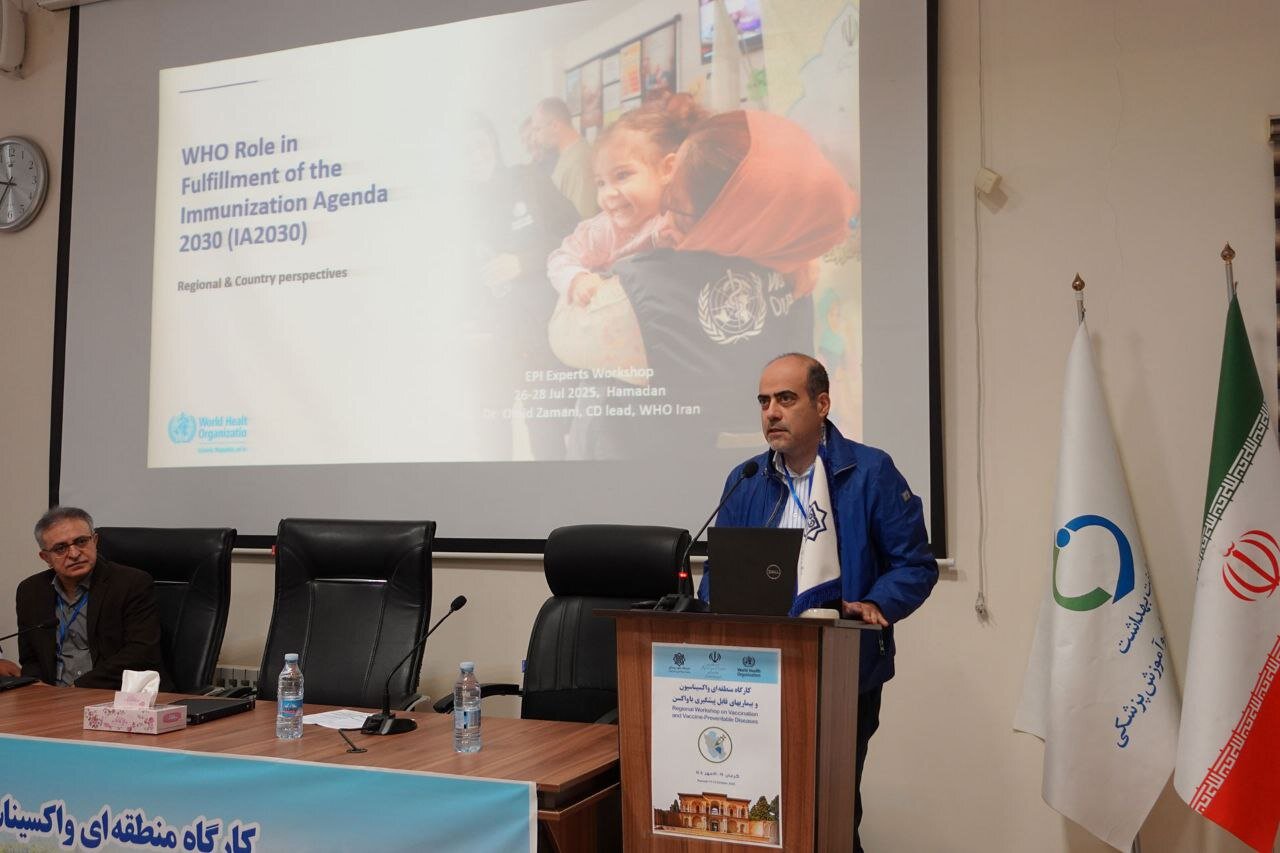Workshop on vaccination held with WHO, GAVI Alliance support

TEHRAN – Supported by the World Health Organization (WHO) and Global Alliance for Vaccines and Immunization (GAVI Alliance), Kerman University of Medical Sciences played host to a 3-day regional workshop on vaccination and vaccine-preventable diseases.
Held from October 10 and 12, the event gathered Expanded Programme on Immunization (EPI) officers and managers from 34 medical universities, the majority from eastern and south-eastern Iran, to bolster national immunization capacities, focusing on planning, surveillance, and tackling vaccine hesitancy.
The workshop received technical support from the WHO Country Office in the Islamic Republic of Iran and financial backing from Gavi, the Vaccine Alliance. The training focused on strengthening immunization planning, providing updates to national guidelines, enhancing cold chain management, improving surveillance of adverse events following immunization, and fostering effective community engagement.
High-level officials from the Ministry of Health and Medical Education (MOHME) addressed key priorities. Dr Ghobad Moradi, Director of the Centre for Communicable Diseases Control, emphasized vaccination’s critical public health role and addressed cutting-edge topics, including the targeted use of artificial intelligence in immunization programmes and strategies to boost coverage among migrant populations.
Dr Mohsen Zahraei, National EPI Manager at MOHME, reviewed 50 years of EPI achievements in the Islamic Republic of Iran and outlined plans, including “supplying influenza vaccines to key groups, organizing national and regional meetings, and advancing measles elimination, polio eradication, and central cold storage expansion”.
The workshop provided a platform for interactive discussions and practical problem-solving. Dr Omid Zamani, National Professional Officer from the WHO Country Office, led a session on the global Immunization Agenda 2030 (IA2030), sparking dynamic discussions on national priorities. Participants also collaborated on group assignments to develop and present innovative, practical solutions to address regional challenges like vaccine hesitancy.
Other essential topics covered included a review of the new national immunization guidelines, vaccine procurement, and surveillance systems for diseases like meningitis, diphtheria, tetanus, and pertussis.
An online evaluation survey conducted by WHO at the workshop’s close revealed high participant satisfaction with the event’s organization, content, and trainers.
Equipped with updated knowledge and practical tools, attendees can now cascade the training to provincial and local health teams, amplifying immunization efforts and advancing Iran’s commitment to achieving IA2030 targets.
Strengthening immunization program
In August, over 80 health officials and senior managers from across Iran gathered in Hamadan for a 3-day training of trainers (ToT) workshop to enhance immunization service delivery and improve vaccine coverage across the country.
Organized by the Hamadan University of Medical Sciences in partnership with the Ministry of Health and Medical Education (MoHME), with support from the WHO and Gavi, the event was held from July 26 to 28, the WHO website announced in a press release on August 27.
The workshop brought together immunization officers from 32 universities of medical sciences. Participants honed their skills in areas such as vaccine scheduling, cold chain management, and monitoring adverse events following immunization, and also in risk communication to effectively address public health concerns.
The EPI Manager at the Ministry of Health and Medical Education, Seyyed Mohsen Zahraei, noted the Islamic Republic of Iran’s successful, 50-year history of battling infectious diseases, including the country’s eradication of polio and elimination of measles. He underscored the vital role of the National Immunization Technical Advisory Group (NITAG) in guiding immunization policies.
Head of the Communicable Diseases Department at the WHO Country Office in Iran, Omid Zamani, underlined the Organization’s commitment to Iran’s health initiatives, highlighting their alignment with the global Immunization Agenda 2030.
Throughout the sessions, participants engaged in candid discussions about the local challenges they face, such as logistical hurdles in reaching remote, rural communities.
An online evaluation survey conducted by WHO at the workshop’s close revealed high participant satisfaction with the organization and content of the training and the expertise of the trainers.
The knowledge and skills gained during the workshop will have a ripple effect as participants go on to conduct training at the provincial and local level to empower a broader network of health care providers.
MT/MG
Leave a Comment